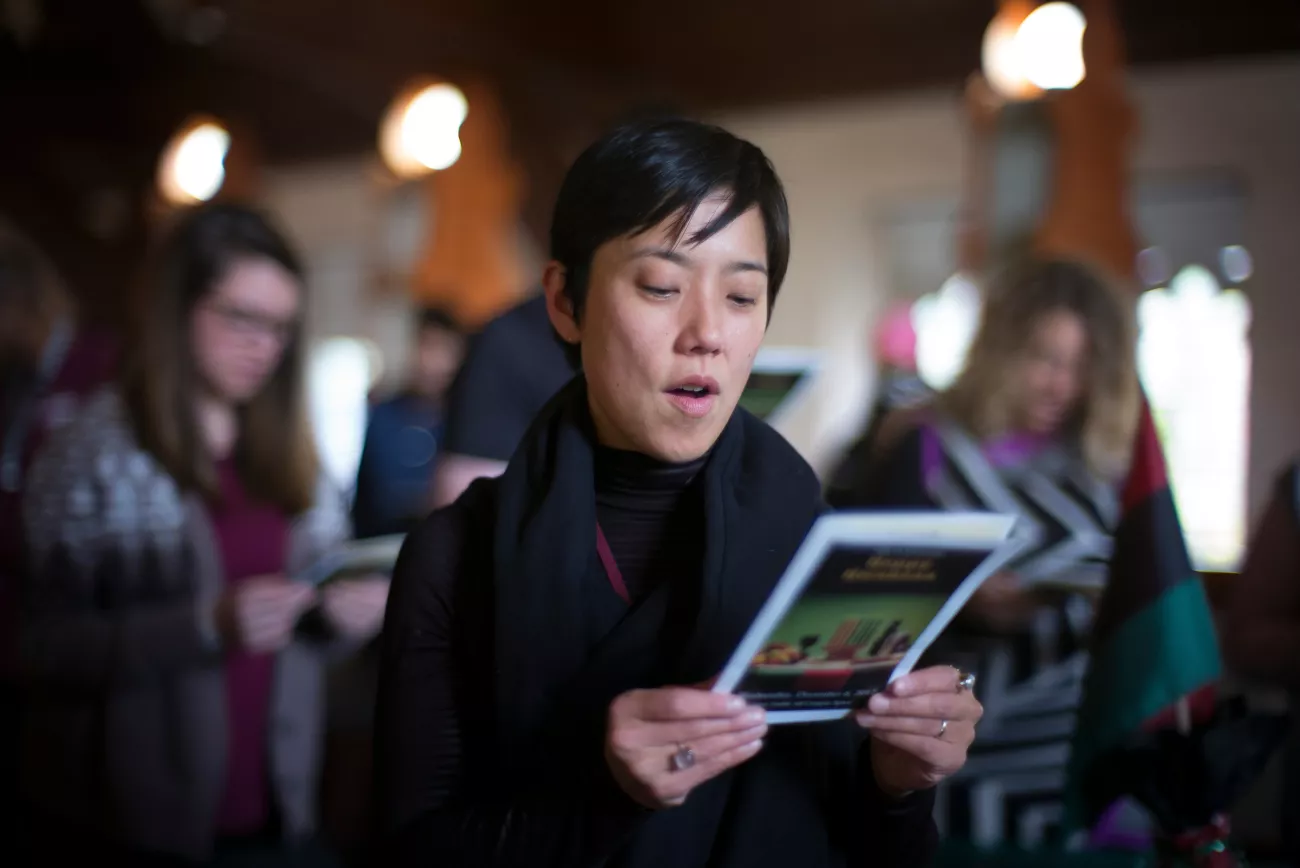Pedagogical Development Opportunities
Great teaching involves ongoing inquiry and revision. Explore opportunities to expand your pedagogical skill set, on campus and beyond.
Great teaching involves ongoing inquiry and revision. Explore opportunities to expand your pedagogical skill set, on campus and beyond.
Hosting weekly lunches, study halls, writing groups, and much more, the Provost's Office is a primary source of faculty development on campus.

Brainstorming and Seed Grants support faculty projects related to research, teaching, curriculum, or service/governance. The grants are flexible as to the nature and scope of the initiatives funded. Projects could include faculty working groups, topical workshops or symposia, "outreach" activities, invited speakers, travel money for faculty training, etc.
The Lang Center houses Swarthmore College’s Engaged Humanities Studio. The EHS brings together scholars, students, artists, activists, and community members through collaborative projects to address issues of pressing social concern. We focus on experiential, community-based, and critical-making practices that combine humanistic modes of inquiry and understanding with extra-humanities disciplines, non-student communities, and/or pressing social issues that would benefit from humanistic perspectives.
The Alliance to Advance Liberal Arts Colleges (AALAC) provides funds to support workshops that enable faculty members from AALAC institutions to gather and work together on a subject of mutual interest. Designed and organized by the faculty, the workshops may focus on topics relating to research, curricula, or pedagogy and, where relevant, may be either disciplinary or interdisciplinary.
Swarthmore's NCFDD membership includes several on-demand pedagogy webinars and planning resources. Activate your membership and explore the available resources and programs. NCFDD also offers a multi-week Teaching Toolkit program for an additional cost. Contact the Provost's Office if you are interested in signing up.
LACOL leverages the power of consortial relationships to promote excellent and innovative teaching, learning, and research in the liberal arts, with a special emphasis on utilizing and adapting emerging technologies. LACOL encourages experimentation to develop, share, and assess the most effective modes of digital teaching and learning. Check it out to find resources on the focal topics — Active and Engaged Reading, Data Science+, Digital Competencies, Effective Teaching and Learning (Inclusive Pedagodies), Language Instruction, and Quantitative Skills — or propose programming of your own.
Since 1992, the National Humanities Center has provided college and university faculty with opportunities to deepen their knowledge and find intellectual renewal under the guidance of leading scholars. With an emphasis on interdisciplinary connections, these seminars encourage learning about new ways to apply scholarly research to college-level teaching.
Open-source teaching and curricular resources for humanities professors. Find materials or share your own.
